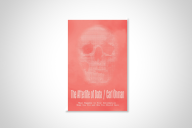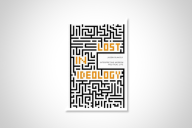You have /5 articles left.
Sign up for a free account or log in.
The publisher seems not to have noticed, but Robert Irwin’s Ibn Khaldun: An Intellectual Biography (Princeton University Press) happens to appear on the 60th anniversary of the first complete English translation of Khaldun's masterpiece, The Muqaddimah, in three large volumes. An abridged edition of Khaldun’s treatise is available in paperback (also stout) from the same press.
Even in its condensed form, The Muqaddimah comes with a moniker that feels like a wry comment on the interminable demands of scholarship: the title is the Arabic word for “introduction,” since Khaldun (1332-1406) wrote it as a kind of methodological prologue to his much longer history of the world, composed during the heyday of medieval Islamic intellectual life. (Irwin is senior research associate at the School of Oriental and African Studies in London.)
Despite everything marking it as the product of a very different culture and era, The Muqaddimah is bound to impress the 21st-century reader, from the first page, as a work of integrative social science. Khaldun writes that the historians of earlier times are unreliable because they lacked “clear knowledge of the principles resulting from custom, the fundamental facts of politics, the nature of civilization or the conditions governing human social organization.” Having given these matters a great deal of thought as both a scholar and an experienced political operative, he was driven to work out a kind of sociological model of historical change, taking into account geography, law, economics and culture. The book is nothing if not encyclopedic, with its vast array of learning bound together by a core concept: asabiya, or “group feeling.”
Khaldun starts out from the intense bonds of social solidarity needed to keep human existence going from generation to generation in the face of everything nature has to throw at it. The laws, customs and skills of various communities -- their respective patterns of life and authority structures -- are both made possible by asabiya and serve to sustain it. For Khaldun, the purest and strongest form of asabiya develops among desert nomads. Communities that settle in fertile areas develop more prosperous economies and firmly established royal authority. Culture flourishes and grows more sophisticated -- and The Muqaddimah itself is very much a product of what its author calls a “sedentary civilization.” But over time, corruption sets in. The feeling of communal solidarity grows thinner and the people more sinful (which is more or less the same thing). “The toughness of desert life is lost,” Khaldun writes. “Members of the tribe revel in the well-being God has given them. Their children and offspring grow up too proud to look after themselves or to attend to their own needs … Eventually, group feeling is altogether destroyed.”
By then, the combination of prosperity and weakness invites conquest by nomads, which Khaldun regards as a good thing, on the whole. The nomads bring with them a firmer piety and a stricter moral sensibility; they provide a kind of asabiya transfusion. (Not by chance did the prophet emerge among people of the desert.) But then the process repeats. Khaldun sees history as cyclical; he takes what comfort he can from his discovery that it is at least intelligible.
Roughly half of the books about Khaldun available in English have appeared in just the past 20 years, including Bensalem Himmich’s novel The Polymath, which was the closest thing to a biography available until Allen James Fromherz, a professor of medieval Mediterranean and Middle East history at Georgia State University in Atlanta, published Ibn Khaldun: Life and Times (Edinburgh University Press) in 2011.
Khaldun did leave an account of his own life, or rather of his career: a listing of the eminent scholars he studied with and his various positions as judge, tax collector, diplomat and professor. Contemporaries describe him as irascible and arrogant -- though, as Irwin says, “he had a lot to be arrogant about.” Irwin’s biography (by my count, the second in English) shows that Khaldun’s life was not without incident. He served a two-year prison sentence at the hands of one employer and was driven into exile by another. The first draft of The Muqaddimah was composed while the author was lying low in a castle in Algeria. A few years later, he suffered the loss of his wife, daughters and library when the ship transporting them sank en route to joining him in Egypt.
Fromherz’s biography depicted Khaldun not only as belonging to the Sufi branch of Islam but also as achieving “awakening” about the course of history as part of Sufi mystical experience. Irwin is skeptical but will allow that circumstantial evidence strongly suggests Khaldun was a Sufi, even if he never explicitly identified as one. This detail is important given the overall thrust of Irwin’s book, which is that Khaldun’s modern admirers haven’t understood him very well at all.
“Though Ibn Khaldun was almost certainly a Sufi,” he writes, “this was not apparent to 19th-century commentators who mostly preferred to think of him as a rationalist, a materialist and a positivist.” The French scholars who first introduced him to the European public aimed “to strip Ibn Khaldun of his superficially medieval Arab identity and reveal him to be in reality a modern Frenchman and one, moreover, who would have approved the French Empire in North Africa.”
By the 20th century, sociologists identified Khaldun as a pioneer in their field. Arnold Toynbee celebrated The Muqaddimah as anticipating his own analysis of the rise and fall of civilizations. Marxists found Khaldun’s attention to economics admirably Marxish. One of the earliest monographs in English was by a disciple of Leo Strauss, the proto-neoconservative philosopher; it reveals Khaldun to have been no mere sociologist but rather a participant in the secret dialogue among philosophers down the centuries, interpretable only by those possessing the Leo Strauss fan club secret decoder ring.
In short, interpreters of Khaldun have been prone to remake him in their own images. Irwin’s biography is meant as an antidote by stressing the various elements that just don’t fit when trying to modernize Khaldun. Seeing him as a philosopher of history or a sociological theorist avant la lettre tends to secularize his framework, as if the citations from the Quran were ornamental rather than essential. He did not identify himself as a falasifa (philosopher); the word rendered as “philosophy” in the English translation of The Muqaddimah instead means “wisdom” or “what prevents one from ignorant behavior.” And the strain of moralism and pessimism suggested by Khaldun’s cyclical view of history is baked right in. “The entire world is trifling and futile,” he writes. “It leads to death and annihilation.”
That could be just a rhetorical flourish. But coming as it does from the pen of a man whose family drowned in the Mediterranean at the very time he was assuming a plum job in government service, maybe not.
Irwin’s biography may bend the stick too hard on some matters. The Muqaddimah still reads to me more like someone inventing sociology than it does the work of a pious man wringing his hands as the world goes to hell in a handbasket. But looking at the author from both angles may be necessary to see him in greater depth.








